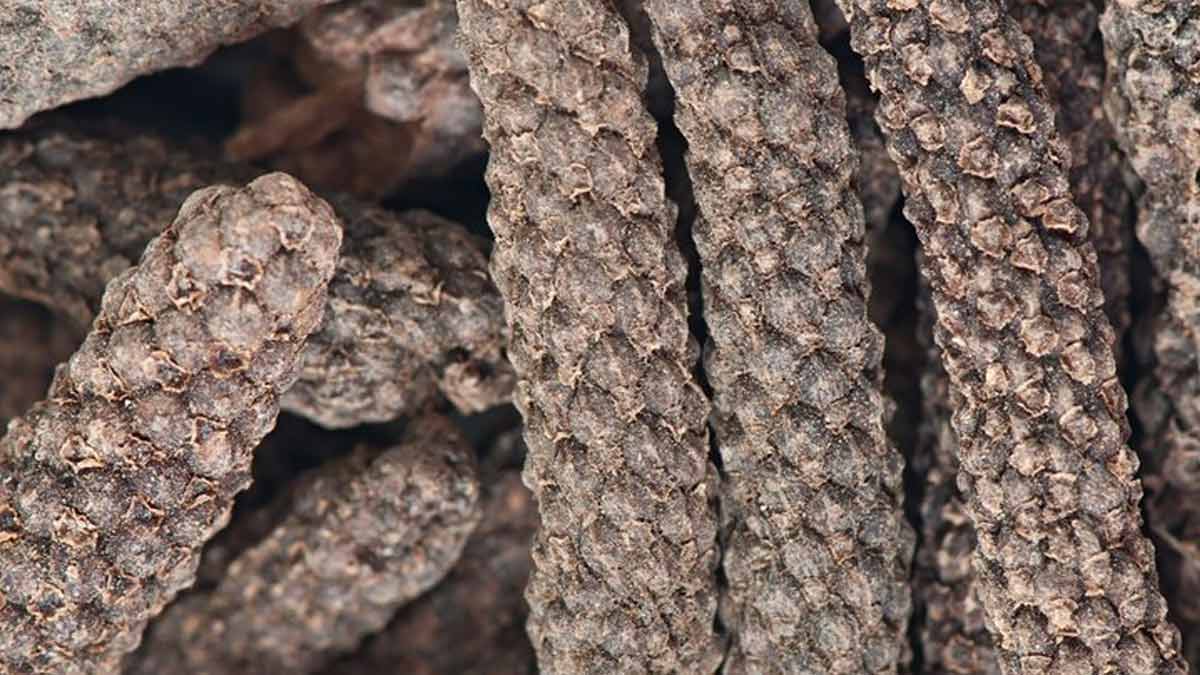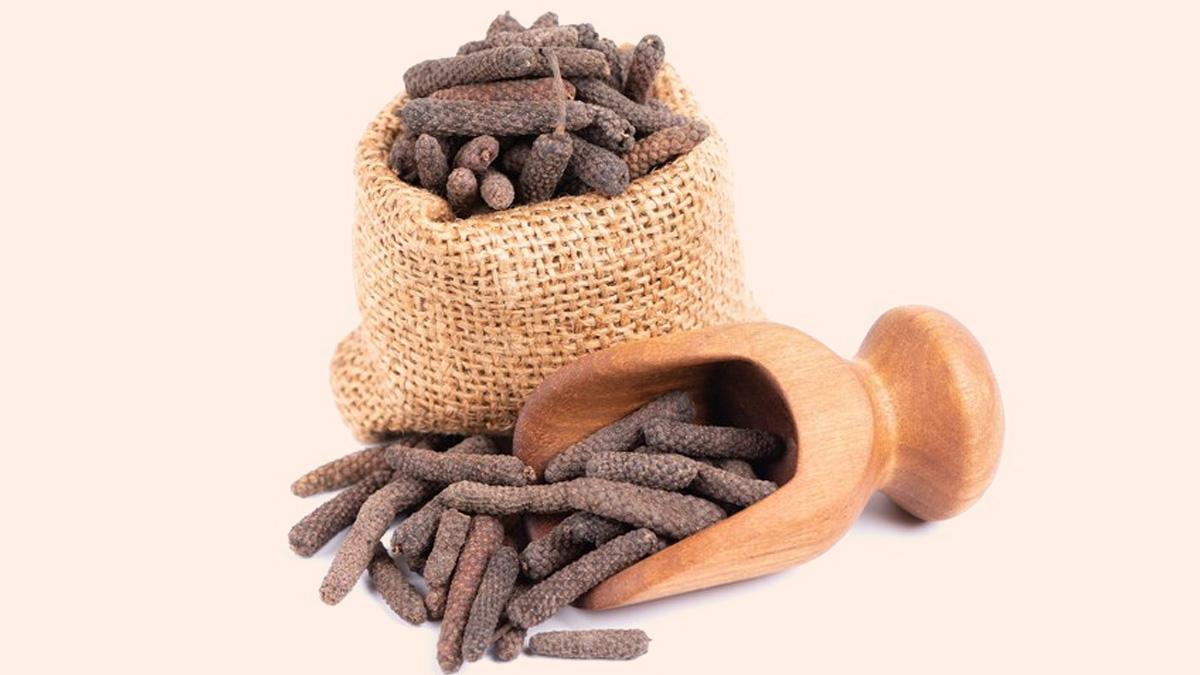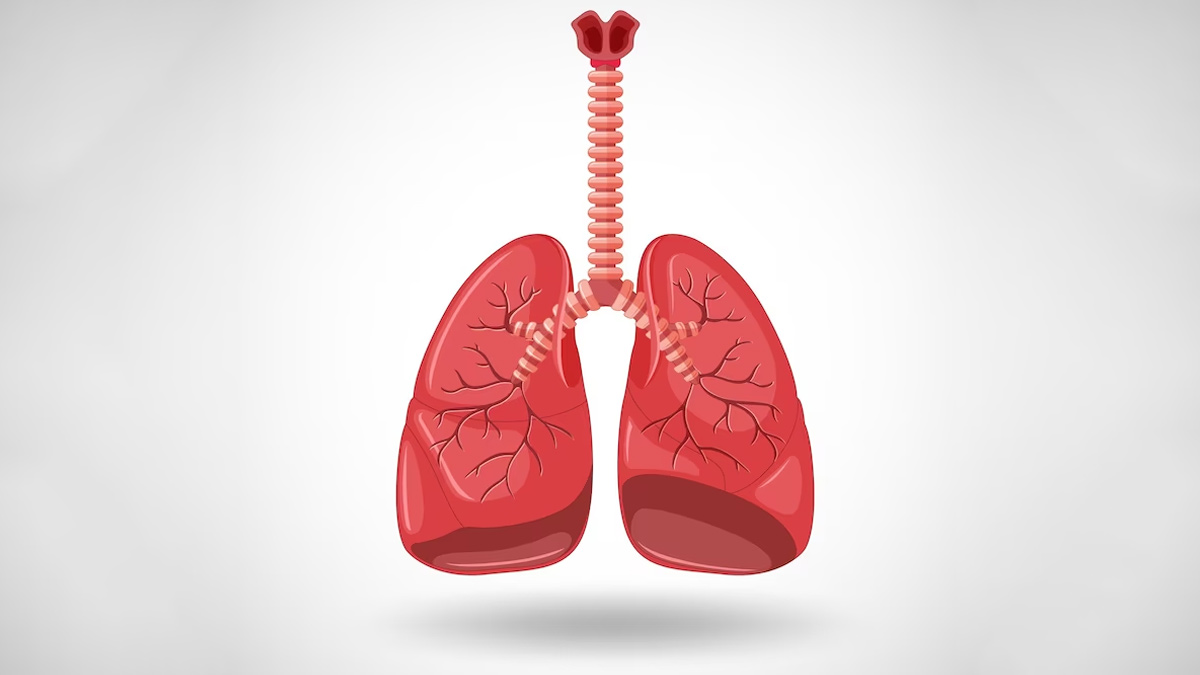
Indian long pepper is a plant that grows throughout South Asia. Its fruit and root are used in Ayurvedic treatment and as a seasoning in food.
Indian long pepper fruit and roots contain compounds that may help eliminate parasites and reduce swelling. One of these compounds is known as piperine. When taken orally, piperine appears to improve the body's absorption of certain medications and other chemicals.
Table of Content:-
Pippali is a traditional herb used in Ayurvedic medicine for various health benefits, including its potential to alleviate dry cough. Here's how pippali may help in managing and relieving dry cough.

Expectorant Properties
“Pippali is believed to have expectorant properties, meaning it may help in loosening and expelling mucus from the respiratory tract. This action can be beneficial for individuals with dry cough as it promotes the removal of irritants and relieves congestion,” said Dr Ganesh Chaudhary, Bachelor of Ayurvedic Medicine and Surgery (BAMS), PHC, Darbhanga, Bihar.
Anti-inflammatory Effects
“The anti-inflammatory properties of pippali may help in reducing inflammation in the respiratory passages. This can be particularly useful in soothing the irritation that often accompanies dry cough,” Dr Chaudhary said.
Also read: Treating Childhood Obesity With Ayurveda: Expert Lists Ayurvedic Approaches That Can Help
Antitussive Action
“Pippali is traditionally used as an antitussive agent, which means it may have the ability to suppress coughing. This can be beneficial in providing relief from the persistent and irritating nature of dry cough,” Dr Chaudhary stated.
Immunomodulatory Effects
Some research suggest that pippali may have immunomodulatory effects, which means it can influence or regulate the immune system. A balanced immune response is essential for controlling respiratory disorders, including coughing.
Respiratory Tonic
Pippali is considered a respiratory tonic in Ayurvedic medicine. It is believed to strengthen the respiratory system and enhance lung function, which can contribute to the overall management of cough and respiratory issues.

Antioxidant Properties
The antioxidant compounds present in pippali may help in combating oxidative stress and protecting the respiratory system from damage. Oxidative stress can exacerbate respiratory conditions and contribute to coughing.
Combination with Honey
In Ayurveda, pippali is often combined with honey for its soothing and healing effects. Honey itself is known for its cough-suppressant and throat-soothing properties. Together, pippali and honey can form a natural remedy for dry cough.
Also read: Ayurveda For Diabetes: Expert Shares 4 Drinks You Should Consume On An Empty Stomach
It's worth noting that, while pippali has long been used to treat coughs, scientific data on its precise usefulness is scarce. Individuals with respiratory issues or persistent cough should seek medical advice before using pippali or any herbal medicine, especially if they are using medications or have underlying health conditions.
Pippali can be eaten in a variety of ways, including powder, tea, and Ayurvedic formulations. As with any herbal therapy, moderation is essential, as is adhering to stated dosages and usage instructions.
Also watch this video
Read Next
After Heavy Rain In North India, IMD Issues Cold Wave Warning: These Ayurvedic Soups May Protect You
How we keep this article up to date:
We work with experts and keep a close eye on the latest in health and wellness. Whenever there is a new research or helpful information, we update our articles with accurate and useful advice.
Current Version